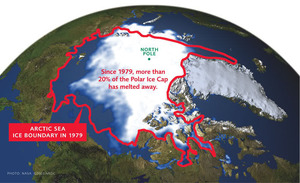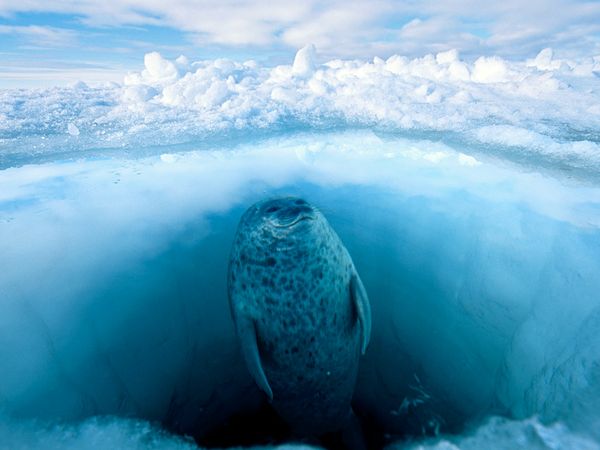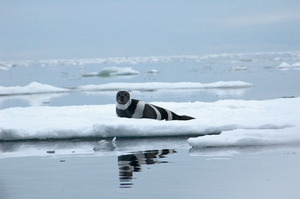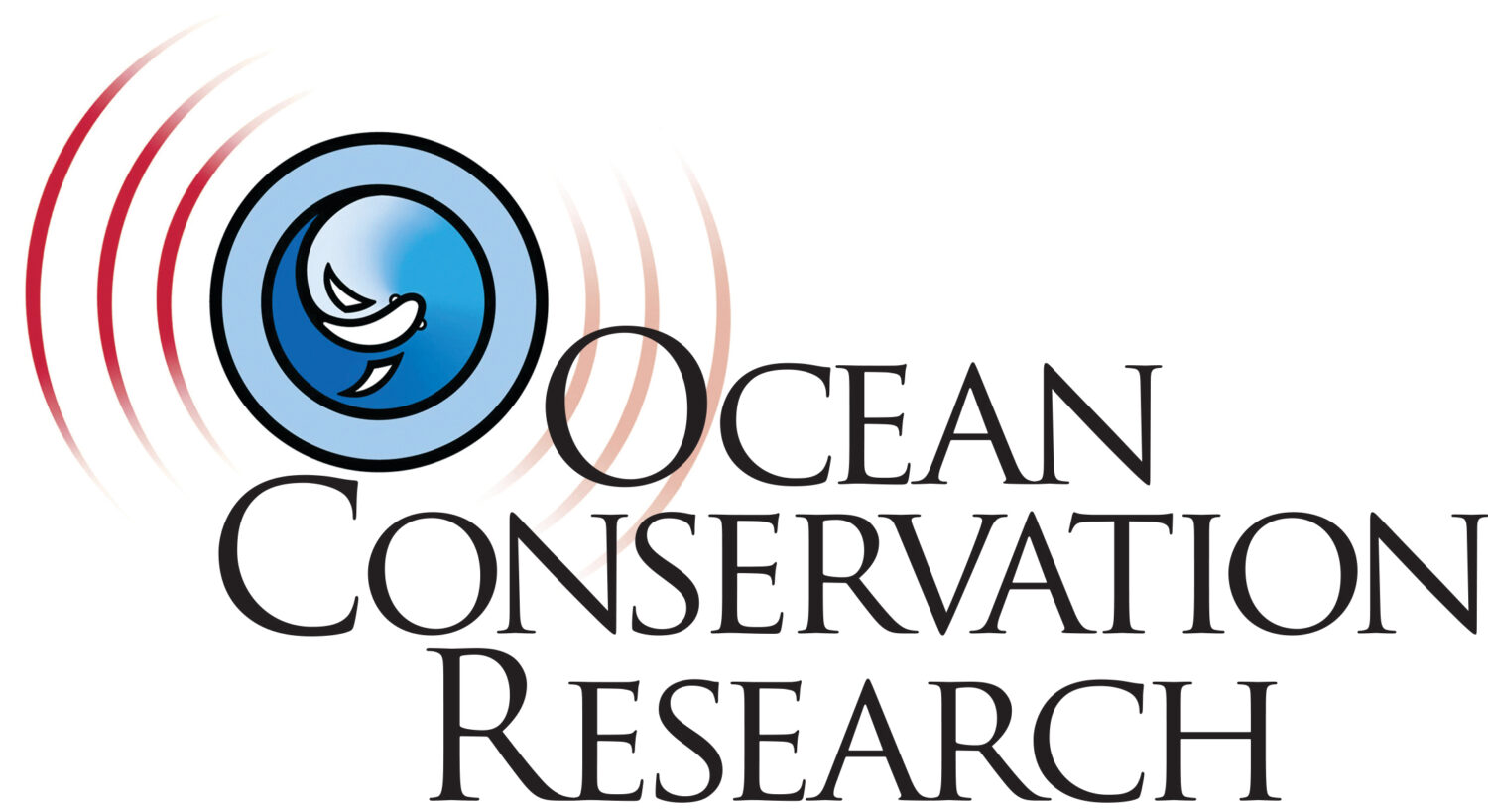Last week we attended an Acoustic Society conference in San Diego. This time I didn’t deliver a paper so it was mostly a reconnaissance trip – both to catch up with colleagues and to introduce Gwynn, our Digital Assets Manager to the field.
It is not a surprise that many of the bioacoustic papers that were presented involved the Arctic – both in terms of the acoustic ecology and habitat assessment, and in learning more about the animals in the area.

Map of polar ice melt
As the “ground zero” for global warming, the Arctic is changing extremely fast. Due to accelerated melt-back of the ice-cap entire expanses of the sea are being exposed to daylight which may not have seen the sun since the late Miocene period (over five million years ago). We all know that this is distressing the Polar Bears, but it is also threatening the Ribbon, Ringed, and Bearded seals, which live exclusively on sea ice.
Sound recordings are being made documenting animal vocalizations, baseline ambient noise, and the rise in human-generated noise. New sounds are being discovered, and new impacts are being noticed.

Ringed Seal: Photo by National Geographic
And this is none too soon.
This last summer Shell Oil was cleared to drill three exploratory wells in the Beaufort Sea, and just last Thursday the Department of Interior released a five year offshore drilling plan that includes opening up more leases in the Arctic.
Additionally, the National Marine Fisheries Service (NMFS) will soon be releasing the Draft Environmental Impact Statement for their five year Arctic plan for public comments. Given that the petroleum industry has been pushing to get their pipes in the Arctic waters we expect that there will be much to comment on.

Ribbon Seal: Photo by Exploratorium
We have been anticipating this and spent a good amount of time this last year with Dave Aplin of WWF, Michael Jasny of NRDC, and the good folks at Bean Creative developing a highly featured and interactive website focused on the impacts of offshore oil industry noise on Arctic habitats.
We’ll be launching this in the next few weeks to get everyone up to speed on the issues so that we can all provide focused and informed critiques of the NMFS plan.
Stay tuned; given the voracious appetite of the Oil Men we’ll need “all hands on deck” to protect the Arctic from their oily (and noisy) assaults.
